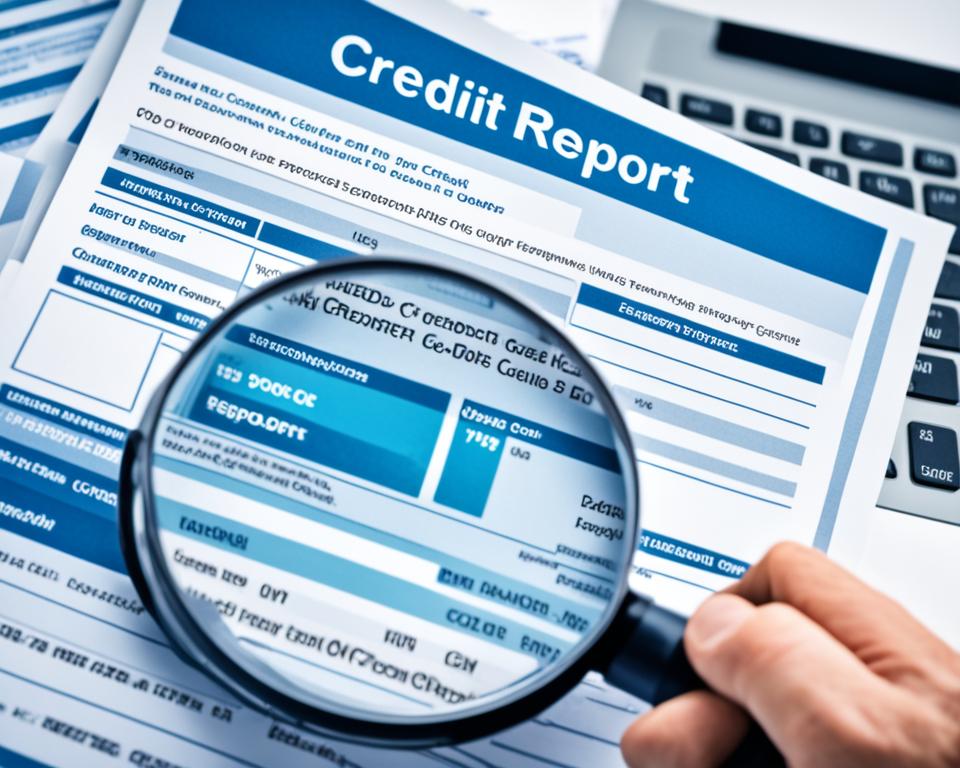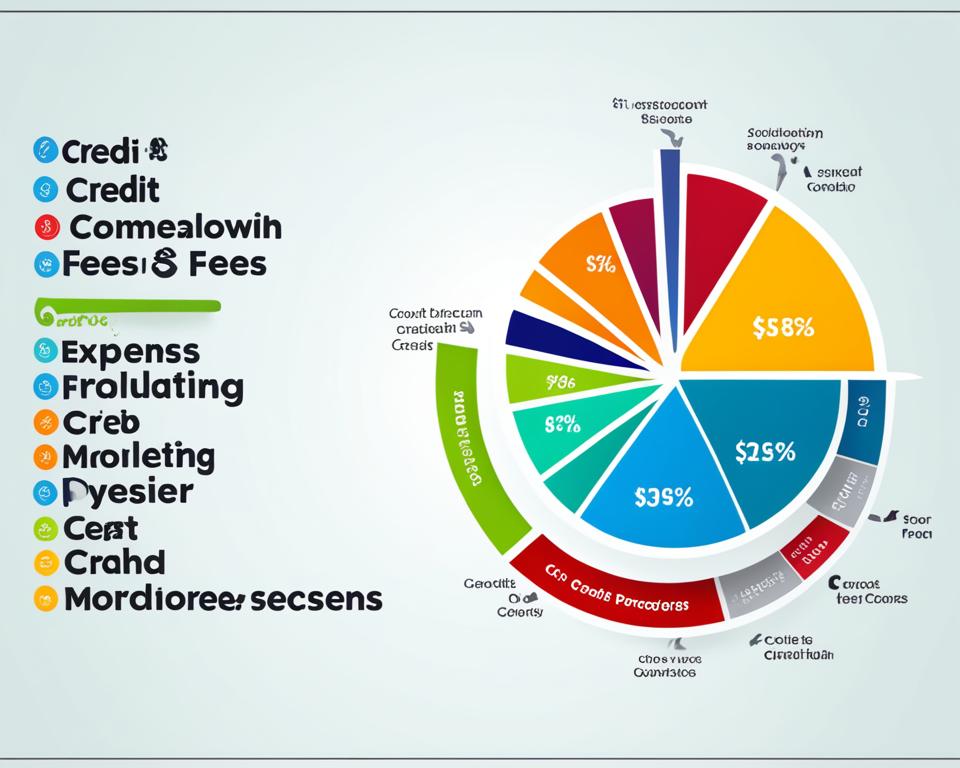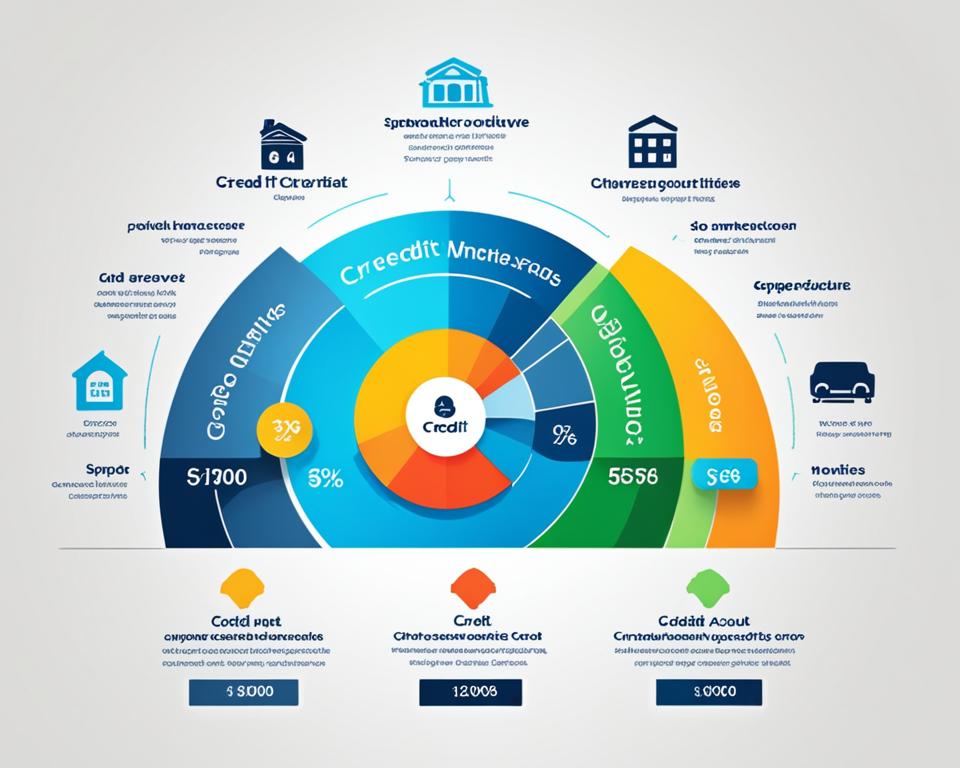When financial credibility is on the line, many turn to credit repair services to mend their fiscal fences. But can these services deliver on their promises to improve credit scores? Navigating the path to credit recovery can be fraught with complications, whether due to identity theft or erroneous reporting. Credit restoration services pledge to steer consumers back on track, asserting their capacity to excise inaccuracies from credit reports.
The ultimate quest for most is an improved credit standing, which unlocks doors to loan approvals, better interest rates, and financial peace of mind. Yet, it falls upon the discerning consumer to differentiate between the best credit repair companies and those less scrupulous, as outcomes may vary. In a world where every financial move is scrutinized, understanding the efficacy of these services is crucial.
Key Takeaways
- Legitimate credit repair can aid in the removal of incorrect report items to boost credit scores.
- Not all credit repair promises can be kept; discern the genuine offers from scams.
- Credit repair steps that companies take can also be self-administered without a fee.
- Awareness of rights and industry scams is essential when pursuing credit repair services.
- Accuracy of information dictates the potential for credit report correction and score improvement.
Explaining Credit Repair Services
In an age where a good credit score paves the way for financial opportunity, understanding how to repair credit has become essential. Credit repair companies have emerged as allies to those looking to improve their credit history. Their services often hinge on identifying and disputing inaccurate information on credit reports, information that if corrected, could positively impact one’s credit score. This section demystifies the services offered by these companies, differentiates credit repair from credit counseling, and addresses the legality of credit repair.
What Credit Repair Companies Do
At the heart of credit repair, these companies scrutinize credit reports for mistakes and inaccuracies. From instances of identity theft to clerical errors, incorrect information can be a blot on your credit report, unfairly reducing your score. The goal of these companies is to find, dispute, and correct these mistakes. While some consumers take on this endeavor independently, companies provide convenience and expertise in handling often complex and time-consuming disputes.
The Difference Between Credit Repair and Credit Counseling
While they may appear similar to the untrained eye, credit repair and credit counseling serve distinct roles in the realm of financial assistance. Credit repair is primarily about fixing flaws on a credit report. In contrast, credit counseling involves advice and planning around debt management and financial budgeting. Credit counselors provide personalized advice on reducing debt, managing finances, and sometimes, establishing debt management plans.
Legality and Limitations of Credit Repair
Credit repair is not only legal but also a legitimate step some individuals may need to undertake to ensure their credit report reflects accurate information. However, the scope of this practice is confined by law; companies providing these services cannot lawfully alter accurate and verifiable data on a credit report. The legitimacy of a repair service can be a beacon for those daunted by the process, but it is essential to remember that the same results are achievable independently, without any cost incurred.
Understanding the Credit Repair Process
The journey to a higher credit score begins with a comprehensive understanding of the credit repair process. This voyage to fiscal rectification involves three pivotal steps: acquiring your credit reports, spotting errors across them, and disputing those inaccuracies with solid evidence.
Obtaining Your Credit Reports
To set the stage for credit improvement, it’s imperative to obtain credit reports from the major reporting agencies. These pivotal documents, which enumerate your credit history, are available annually at no charge. To procure your reports from Equifax, Experian, and TransUnion, direct your navigation to AnnualCreditReport.com. This official source is your gateway to accessing the reports that form the backbone of the credit repair journey.
Identifying Errors and Inaccuracies
A meticulous review of your credit reports could unveil errors derailing your score—such as mistakenly recorded late payments or unrecognized accounts, possibly hinting at identity theft. It takes a keen eye to scour through the reports and highlight these discrepancies which could be unjustly tarnishing your credit reputation.

The Proper Way to Dispute Errors
Upon the discovery of inaccuracies, one enters the phase of contention—dispute errors with zeal and substantiation. This is where you align forces with the dispute process laid out by the Federal Trade Commission (FTC). Communicate directly with the involved credit bureaus or the creditors to dispute the erroneous entries. It’s imperative to arm these disputes with corroborating documents, reinforcing your stance. The bureaus have a regulatory duty to respond to your disputes expeditiously, typically within 30 days, and they are obliged to convey the outcome of their investigations in writing, ensuring transparency in the rectification process.
By following these key steps in the credit repair process, individuals can take control of their credit health and navigate towards a brighter financial future with precision and confidence.
Evaluating the Effectiveness of Credit Repair Agencies
As individuals seek answers to the pressing question “do credit repair services really work?”, understanding what credit repair agencies are capable of is paramount. These establishments offer services aimed at disputing and rectifying erroneous entries on credit reports, potentially leading to improved credit ratings.
Credit repair near me is a common search query reflecting the need for local support in managing credit inaccuracies. Consumers often wonder about the efficacy of these organizations, considering whether the fees charged correlate with the value of services received.
Given the landscape of financial services, it’s imperative to gauge the effectiveness of credit repair agencies based on their ability to deliver accurate dispute resolutions. They can intervene on behalf of consumers, challenging inaccuracies with credit bureaus and creditors—yet, this is a task that consumers can also undertake by themselves at no cost.
| Service Offered | Consumer Ability | Agency Effectiveness |
|---|---|---|
| Dispute inaccuracies | Can be done by individuals for free | Expertise in handling disputes |
| Credit monitoring | Possible through various free apps | Provides additional oversight |
| Guidance through credit repair process | Information widely available online | Personalized support and convenience |
Moreover, it’s crucial to recognize that while credit repair agencies can guide consumers through disputes and offer credit monitoring, their performance tracks back to the ability to spot and dispute factual inaccuracies. Acting within legal confines, credit repair agencies align their strategies with the clients’ best interests—but cannot guarantee improved credit scores if the negative information is accurate and verifiable.
Prospective clients considering options for credit repair near me or online should thus critically assess the potential costs versus the benefits, considering the long-term impact on their credit health and financial dexterity.
The Costs Associated with Credit Repair
Embarking on the journey of credit repair often comes with associated costs that are structured in various ways by credit repair companies. These expenses can vary widely, making it vital for consumers to understand the comprehensive financial commitments they are embarking upon when seeking these services.

Monthly Fees Versus Per-Item Charges
When it comes down to monthly credit repair fees versus per-item charges, understanding the payment structure is essential for budgeting. Some companies opt for a monthly subscription model, charging a set rate that covers a suite of services provided throughout the month. These fees commonly range from $19 to $149 depending on the complexity and intensity of the services offered.
Alternatively, other companies may charge a per-item fee, billing clients for each specific dispute or removal of inaccurate information from their credit reports. This can be a cost-effective solution for those with a limited number of discrepancies to contest. To provide a clearer picture, let’s compare these costs in the following table:
| Monthly Subscription Fee | Per-Item Charge |
|---|---|
| $19 – $149 per month | Varies per dispute/removal |
Understanding the “First Work” Fee
The process often begins with a first work fee, a preliminary charge that covers the initial analysis and setup conducted by a credit repair company. Renowned firms like Ovation Credit Services are transparent about this initial cost, which may typically be around $89. This fee covers the groundwork needed to start repairing one’s credit, such as report evaluation and the identification of potential inaccuracies to dispute.
For individuals seeking affordable credit repair, it’s important to factor in the accumulated cost of these fees over time. Although monthly fees can provide a continuous service, per-item charges may offer a pay-as-you-go approach. Consumers should consider their unique situations and select the option that balances effectiveness with economic feasibility.
How to Identify Reputable Credit Repair Companies
When searching for the best credit repair company, consumers must be diligent in identifying the most reputable credit repair companies. Transparency is a key indicator of a credible firm, as it reflects an organization’s commitment to honesty and integrity in its practices. A history of successful credit repairs adds to a company’s standing, providing tangible evidence of its expertise and effectiveness.
Adherence to federal regulations, such as the Credit Repair Organizations Act (CROA), further underscores a company’s legitimacy. This act prohibits companies from demanding payment upfront, guaranteeing the removal of accurate information, or engaging in any deceptive practices.
Researching customer reviews and checking a company’s Better Business Bureau (BBB) rating can reveal much about its reliability and customer service. This feedback offers a wealth of insight and is often reflective of the real-world experiences consumers have had with the company. Those that maintain high ratings and positive reviews are generally seen as more trustworthy.
| Criteria | Why It’s Important |
|---|---|
| Transparency in Services | Indicates honesty and willingness to share detailed information about the process. |
| Success Track Record | Shows evidence of successfully assisting previous clients in improving their credit. |
| CROA Compliance | Ensures that the company operates within the legal framework intended to protect consumers. |
| Customer Reviews | Real experiences can forecast the potential outcomes clients might expect. |
| BBB Rating | A high rating suggests a company is reputable and resolves consumer complaints satisfactorily. |
By carefully considering these important factors, individuals in need of credit repair services can make informed decisions, avoiding the pitfalls of unethical practices, and steering clear of potential scams.
Red Flags and Warning Signs of Credit Repair Scams
Awareness is the first defense against falling prey to credit repair scams. Understanding the snares set by fraudulent entities is critical in the quest to avoid credit repair fraud. Below are several red flags that signal potential scams and should be approached with caution and due diligence.

Promises That Sound Too Good to Be True
Often, disingenuous companies will dangle the bait of impossible services, such as the wholesale removal of all negative items from a credit report, regardless of their validity. No company can promise a flawless credit score, as some data is immutable and a key part of your credit history.
Illegal Requests and Suggestions
A legitimate company will never urge you to initiate disputes for accurate, verified items on your credit report. Any suggestions implying deceit or encouraging dishonest practices should immediately raise concerns about the integrity of the service you are considering.
Lack of a Written Contract
Legitimate credit repair agencies will always provide a detailed written contract that outlines your rights and their obligations. This contract should be provided before any services are rendered or fees charged. The absence of such a document is a strong indicator of potential fraud or unlawful practices.
| Warning Sign | What It May Indicate | Why It Matters |
|---|---|---|
| Guarantees to fix credit score | Potentially fraudulent claims | Can result in wasted funds and time with no real improvement to credit score |
| Advises dispute of accurate information | Dishonest practice or lack of expertise | Could lead to further complications with your credit history |
| No contract provided | Lack of professionalism and possible scam | Without a contract, there is no legal standing for services promised or performed |
| Demands payment upfront | Violation of the Credit Repair Organizations Act | Indicates potential fraud and a lack of compliance with federal laws |
Understanding these warning signs and verifying the credibility of a credit repair company through the guidance of bodies like the Consumer Financial Protection Bureau is a vital step in protecting oneself from unscrupulous practices in the credit repair industry.
Credit Repair Organizations Act (CROA) Explained
The Credit Repair Organizations Act, commonly known as CROA, is a pivotal federal law established to ensure the fair and ethical treatment of consumers by credit repair organizations. It is a cornerstone of consumer rights when it comes to credit repair protection, offering a shield against deceptive and unfounded credit repair promises. This regulation underscores the importance of understanding one’s rights in the maze of credit report corrections.
Consumer Rights under CROA
The act spells out several critical consumer rights designed to prevent the exploitation of those seeking to repair their credit. Central to the CROA is the stipulation that credit repair companies are not permitted to charge upfront fees for their services. This provision ensures that consumers receive actual value before any payment exchange occurs, circumventing any potential for financial loss from unrendered services.
How CROA Protects You from Scams
The CROA not only safeguards consumers by regulating payment terms but also by banning misleading claims. Companies are prohibited from asserting that they can remove legitimately negative information from credit reports—which is fundamental to credit repair protection. Furthermore, the act requires companies to provide a written contract detailing offered services, enforcing a level of transparency and allowing consumers a window of three days to cancel without penalty, adding an additional layer of security against credit repair scams.
| Protections Offered | Details | Impact on Consumers |
|---|---|---|
| No Upfront Fees | Payment only after services are rendered | Safeguards against paying for unfulfilled promises |
| Written Contract Requirement | Detailed description of services to be provided | Ensures clarity on deliverables and right to cancel within three days |
| Prohibition on Misleading Claims | Illegal to claim removal of accurate negative information | Protects the integrity of the consumer’s credit report |
| Right to Cancel | Three-day period to rescind the contract without penalty | Empowers consumer decision making and deters impulsive commitments |
Through these rigorous standards and requirements, the CROA fortifies consumer confidence in navigating credit repair processes and stymies the prevalence of deceitful practices within the industry. For those looking to improve their financial history, understanding their rights under CROA is an indispensable step toward secure and effective credit restoration.
DIY Credit Repair: Taking Matters Into Your Own Hands
Embarking on a journey of DIY credit repair is not just empowering but also financially prudent. In today’s digital age, you have the tools at your fingertips to correct errors on your credit report without incurring the costs associated with professional credit repair services. With time, patience, and the right resources, you can effectively enhance your financial standing. It all begins with the crucial step of obtaining a free credit report and reviewing it for inaccuracies.

Accessing Free Credit Reports
One of the pillars of DIY credit repair is exercising your right to access free credit reports annually. Thanks to the Fair Credit Reporting Act (FCRA), you’re entitled to a complimentary copy of your credit report every twelve months from each of the three major credit bureaus—Equifax, Experian, and TransUnion. Collect and review your reports carefully by visiting AnnualCreditReport.com, the only officially authorized source for free credit reports.
Steps to Dispute Errors Yourself
After securing your credit reports, take the next assertive step: dispute credit report errors. If you find inaccuracies, such as payments incorrectly marked as late or accounts you don’t recognize, you have the right to challenge these errors. The following list outlines the steps you’ll need to take to dispute inaccuracies on your credit report:
- Identify any errors on your credit reports, marking the items that appear to be incorrect or fraudulent.
- Gather all supporting documentation that substantiates your claim to rectify the error.
- Write a dispute letter to the specific credit bureau, detailing the items you believe are incorrect and including evidence to support your claim. Keep the language clear and direct.
- Send your dispute letter by certified mail with ‘return receipt requested’ for a record of what the credit bureau received.
- Wait for the credit bureau’s response. By law, they are required to investigate your claim within 30 days and provide a written report of their findings.
- If the dispute is resolved in your favor, request a new copy of your credit report to ensure the inaccuracies have been corrected.
This proactive approach to addressing and rectifying errors on your credit report can result in an improved credit score, saving you money on loan interest rates and even impacting your employment prospects. With DIY credit repair, you are in control of safeguarding your credit health.
Credit Repair Services: Do They Work?
For many consumers wrestling with a less-than-stellar credit report, the allure of credit repair services is strong. The promised potential for credit score improvement and the doorways a higher score unlocks in terms of financial opportunities are impossible to ignore. Yet, individuals must contemplate whether the promises of these companies align with credit repair outcomes and if they are worth the investment.
Scrutiny under the lens of legality and success rates reveals that credit repair effectiveness is not a myth; these services can facilitate the removal of incorrect entries which, in turn, may lead to credit score improvement. Nonetheless, this is often where the capacities of credit repair services reach their zenith. As reaffirmed by credit experts and consumer rights laws, the ability of these companies to influence the credit bureaus is contingent entirely on the veracity of the disputes they present.
Forewarned is forearmed, they say—in the quest for fiscal improvement, consumers should grasp the axiom that these services cannot conjure favorable credit reports from accurate negative data. The tables below articulate the types of services offered by credit repair companies and the realistic impact they may have on an individual’s credit report, offering clarity on what can and cannot be achieved through intervention.
| Service Offered | Consumer Impact | Realistic Outcome |
|---|---|---|
| Dispute of Inaccuracies | Potential removal of errors | Can improve credit score if inaccuracies are verified and removed |
| Goodwill Interventions | Requests for leniency on minor past infractions | Varies; success not guaranteed and unlikely to affect legitimate entries |
| Strategic Advice | Guidance on credit management | Can lead to better credit practices but no direct impact on score |
| Credit Monitoring | Ongoing oversight of credit changes | Preventive measure; doesn’t directly uplift score but helps maintain it |
The best credit repair agencies often uphold a track record of successfully challenging inaccuracies, which lends them credibility. However, victory is not assured in every skirmish with the problematic elements of a credit report. As clients consider the path of using a credit repair service, they are encouraged to maintain pragmatic expectations about the outcomes and remain vigilant against any entity promising guaranteed results or shortcut solutions to deep-seated credit issues.
While credit repair services indeed offer a road toward potential credit redemption, they operate within the realm of factual dispute resolution. And thus, while they may serve as a guide in the intricate dance of credit repair, they do not possess the power to rewrite history. Can credit repair companies assist in the battle for a better credit score? Yes, as long as one proceeds with a grounded outlook on the results that these services can genuinely procure.
Improving Your Credit Score: Beyond Disputes
While meticulously disputing errors on your credit report is a critical step towards rectifying your credit score, the whole story doesn’t end there. Crafting a positive credit history involves long-term strategies and good financial habits that are entrenched in your day-to-day life. It’s these consistent efforts that lay down the true foundation for a solid credit score.
The Impact of Timely Payments
One of the most influential factors in ensuring a steadfast increase in your credit score is making timely payments. Each on-time payment acts as a trusty brick in the sturdy wall of your credit history. Financial institutions value reliability; consistent punctuality in settling bills signifies financial stability. This specific habit is such a cornerstone in credit ratings that even a single late payment can cause a noticeable dent in an otherwise impeccable credit score.
Here’s a quick overview of how payment history affects your credit scores:
| Payment History Component | Impact on Credit Score |
|---|---|
| Timely payments | Positive effect, demonstrates financial responsibility |
| Late payments (30+ days past due) | Negative effect, can significantly lower credit score |
| Length of on-time payment history | Longer history contributes to a higher credit score |
Building a Positive Credit History
Establishing a positive credit history is akin to building a financial curriculum vitae — every action counts. Besides ensuring payments are punctual, keeping credit card balances low speaks volumes about your management skills. This facet of credit utilization is a testament to not overextending oneself and keeping debts at a manageable level. While a credit repair service can help dispute inaccuracies, no service can craft the day-to-day choices needed to flourish a positive credit report.
Implementing these additional considerations can help to improve your credit score:
- Avoid maxing out credit cards; strive for low credit utilization rates.
- Stay well below your credit limit to exhibit control over your finances.
- Regularly check your credit report to ensure its accuracy and make informed decisions.
- Take on new credit only when necessary, as opening multiple new accounts can be perceived as a risk by lenders.
Embarking on the pathway to a higher credit score requires these and other sustainable financial behaviors that collectively contribute to a solid credit report. While great emphasis is laid on rectifying discrepancies in your credit history, the magnitude of value lies in these everyday actions that earnestly improve credit scores over time.
Comparing Credit Repair to Other Financial Services
When seeking ways to enhance fiscal health, consumers may find themselves exploring various financial services that promise brighter financial futures. Credit repair, credit counseling, and debt consolidation are often mentioned in the same breath but serve distinct purposes in the realm of personal finance management.
Credit Counseling vs. Debt Consolidation Services
Both credit counseling and debt consolidation fall under the financial services comparison umbrella but differ in approach and objectives. Credit counseling includes professional advisement on budgeting, managing debts, and making sustainable financial decisions. It’s about providing the knowledge and tools to navigate existing financial challenges.
In contrast, debt consolidation services focus on amalgamating multiple debts into a single loan, which can lead to potentially lower interest rates and more manageable monthly payments. This approach can simplify bill-paying processes but may not have the tailored guidance that comes with personalized credit counseling.
Here’s how they compare on various aspects:
| Service Type | Primary Focus | Benefit |
|---|---|---|
| Credit Counseling | Financial education and debt management strategies | Improves financial literacy, empowers to better manage credit and debts |
| Debt Consolidation | Combining multiple debts into one payment | Potentially lowers interest rates and streamlines repayment |
The Role of Financial Education in Credit Health
Financial education plays a vital and instrumental role in maintaining and nurturing good credit health. The depth of knowledge gained through financial education empowers consumers to make informed decisions, understand the implications of their financial actions, and manage credit more proactively. Encouraging savvy financial learning can lead to more effective credit management over time, positively influencing credit reports and overall economic well-being.
Understanding the nuances of credit, including factors that affect one’s credit score, can yield long-term benefits beyond the immediate corrections that credit repair services aim to achieve. It’s the difference between treating symptoms and building a healthy financial lifestyle that can endure the ups and downs of economic trends.
Realistic Outcomes: What Credit Repair Can and Cannot Achieve
Embarking on a credit repair journey often springs from a hope to see tangible improvements in one’s financial profile, a desire for better credit repair outcomes and setting realistic credit restoration expectations. It’s important to realize that while credit repair can be a beacon of hope for many, it has its boundaries in what it can realistically accomplish.
One of the primary outcomes that can be expected from credit repair is the removal of factual inaccuracies from one’s credit report. This, in turn, may lead to an improvement in the credit score, particularly if these errors are negatively impacting the individual’s financial reputation. Eliminating errors such as incorrect late payment entries or accounts fraudulently opened in one’s name can clean up a credit report and, by extension, lead to higher credit scores.
However, it’s crucial to understand that credit repair services cannot lawfully alter or remove information that is correct, even if it’s unfavorable. If the negative marks on a credit report are accurate, they are likely to remain until they naturally age off the report over time. Hence, consumers must temper their expectations when using credit repair services.
Furthermore, while the correction of credit report errors can provide a quick boost to one’s credit score, building a strong credit profile is a gradual process that requires ongoing financial responsibility. Consumers must consistently make on-time payments, maintain low credit balances, and manage their finances prudently over the long term to positively impact their credit score. The table below exemplifies typical results achievable through credit repair versus expectations that fall outside its scope:
| Expected Outcomes | Potential Impact on Credit Score | Limitations of Credit Repair |
|---|---|---|
| Removal of inaccurate negative information | May improve credit score when errors are corrected | Accurate negative information will not be removed |
| Correction of personal information errors | Ensures credit report reflects true identity and history | Information tied to identity theft may require additional steps beyond disputes |
| Advice on improving individual credit habits | Long-term benefit through better credit management | No direct and immediate impact on credit score |
In summary, a combination of deliberate actions such as disputing inaccuracies and adopting healthier financial practices can lead to improved credit restoration. Yet, the process is neither an immediate fix nor a means to alter legitimate credit entries. Consumers should proceed with a clear understanding of what credit repair can reliably deliver, with eyes wide open to the distinction between what is and is not within the realm of possibility.
Conclusion
As we delve into the final thoughts on credit repair, it’s essential to recognize the role reputable credit repair services can play in correcting inaccuracies on credit reports. While they may facilitate potential improvements in credit scores, it’s equally important to understand that they hold no sway over accurate, verifiable information on these reports. This distinction is a crucial element in the credit repair decision making process, guiding consumers to make choices that align with both their fiscal needs and the realities of credit restoration.
The Bottom Line on Credit Repair Services
The effectiveness of credit repair services is certainly not a matter of dispute when it comes to addressing factual errors. However, an overarching truth remains: these services cannot expunge or modify accurate negative entries. Consumers reflecting on whether to take the leap into credit repair must weigh the credibility and cost-effectiveness of such services against the backdrop of their financial circumstances and goals. When considering the final thoughts on credit repair, keep in mind that the foundation of a robust credit score is rooted in sound financial practices, such as making timely payments and maintaining low credit balances.
Making an Informed Decision on Credit Repair
Deciding to engage with credit repair services necessitates a thorough evaluation of various factors. Comprehend the legitimacy of the service providers, consider the spectrum of costs involved, and measure these against the potential benefits. Most importantly, fortify your financial acumen by understanding your rights when interacting with credit reporting agencies. As with any worthwhile endeavor, enhance your credit score through informed, strategic decision making rather than seeking a quick fix. In the end, the most enduring and impactful methods for credit improvement are those that individuals control themselves through dedicated, long-term fiscal responsibility.
FAQ
What do credit repair companies actually do?
Credit repair companies provide services to help consumers identify and dispute inaccuracies on their credit reports with the goal of improving their credit scores. Their tactics might include reviewing your credit reports, disputing any errors with the credit bureaus, and advising on credit improvement strategies.
How is credit repair different from credit counseling?
Credit repair focuses on identifying and disputing errors or inaccurate information on your credit reports to improve your credit score. Credit counseling, on the other hand, involves advising on managing your money and debts more effectively, with the aim of achieving better financial stability and health.
Are credit repair services legal?
Yes, credit repair services are legal, but they are regulated under the Credit Repair Organizations Act (CROA) to protect consumers from fraudulent practices. These companies are not allowed to charge upfront fees, make impossible guarantees, or advise customers to lie about their credit information.
How do I obtain my credit reports?
You can obtain free annual credit reports from the three major credit bureaus—Equifax, Experian, and TransUnion—through AnnualCreditReport.com. Reviewing your credit reports regularly is the first step in identifying any potential errors that could be affecting your credit score.
What is the proper way to dispute errors on my credit report?
If you identify errors or inaccuracies on your credit report, you should dispute them by contacting the specific credit bureau that has the incorrect information. You’ll need to provide documentation to support your dispute, and the credit bureau must investigate and respond within 30 days.
Do credit repair services really work?
Credit repair services can be effective in removing inaccuracies from credit reports, potentially leading to credit score improvements. However, they cannot legally remove or alter correct information. The effectiveness often depends on the company’s ability to dispute and resolve inaccuracies accurately.
What are the costs associated with credit repair?
Costs of credit repair services can vary widely. Companies may charge monthly fees or per-item charges for disputes that result in removals from your report. Additionally, most companies charge a one-time “first-work” fee to cover initial analysis and setup.
How can I identify a reputable credit repair company?
Look for companies that are transparent about their methods, comply with federal regulations like the Credit Repair Organizations Act, have a track record of success, positive customer reviews, and a good rating with the Better Business Bureau.
What are some red flags of credit repair scams?
Red flags include companies that promise to remove all negative information (even accurate info), require payment before providing any services, or don’t provide a written contract. Scammers may also encourage customers to fabricate information when disputing their credit reports.
What rights do I have under the Credit Repair Organizations Act?
Under the CROA, you have the right not to be charged any fees before services are performed, to receive a written contract detailing the services provided, and to cancel the contract within three business days without any penalty.
How can I do credit repair myself?
DIY credit repair involves obtaining your credit reports, reviewing them for errors, and directly disputing those errors with the credit bureaus. You can access free credit reports annually and can use resources provided by the Federal Trade Commission to guide you through the dispute process.
What’s the difference between credit counseling and debt consolidation services?
Credit counseling offers guidance on managing your money and debt efficiently, while debt consolidation services provide tools to combine your debts into a single loan with potentially lower interest rates and one monthly payment to manage your debt repayment more straightforwardly.
What role does financial education play in maintaining good credit health?
Financial education is crucial as it empowers individuals to make informed financial decisions and understand credit management’s role in overall financial stability. It can also lead to proactive credit monitoring and improved financial habits.
What are realistic outcomes that I can expect from credit repair?
Realistic outcomes include the potential removal of verifiable inaccuracies from your credit report and some improvement in your credit score if errors are successfully disputed. However, it’s important to understand credit repair cannot fix accurate negative information that’s rightly reported on your credit history.





